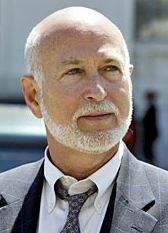Op-ed: Instead of Racial Profiling, Oakland Needs Jobs and Family Support Services
Apr 4, 2014
Posted in Commentary, Elections & Voting Rights, Police-Public Safety, Politics
By Dan Siegel
A report released last week by the Oakland Police Department showed that African Americans were greatly overrepresented among people stopped by OPD from April through November 2013.
Although only 28 percent of Oakland’s population, African Americans were 62 percent of those stopped and 76 percent of those searched.
Among those stopped, Oakland police searched 42 percent of African Americans, 27 percent of Hispanics, and 17 percent of Asians and whites. However, those searches resulted in almost identical recovery rates of firearms, other weapons or drugs – 25 to 28 percent for each group.
Although African Americans were far more likely to be stopped and searched by Oakland police than other people, they were no more likely to be carrying contraband.

Surprisingly, Interim Police Chief Sean Whent defended the disparities, claiming that OPD was focusing on “the people committing the most crime.”
Chief Whent’s comment is confusing. His statistics show that when searches made incident to an arrest are excluded, 78 percent of the people stopped and searched had not committed any crime.
The futility of most OPD searches is consistent with the department’s record of solving crimes, just 30 percent of murder cases and smaller percentages of robberies, burglaries, and other crimes.
And when police search 2762 African Americans during an eight-month period without finding any contraband, it is not surprising that many people in the Black community are afraid and distrustful of the OPD.
S.F. Chronicle columnist Chip Johnson jumped to the chief’s defense, defending racial profiling by attempting to demonstrate that African Americans committed over 80 percent of the violent crimes in Oakland.
Johnson claims, “African Americans comprised 83 percent of the 12,161 suspects in last year’s homicides, attempted homicides, robberies, assaults with firearms and assaults with weapons other than firearms.”
But OPD’s reported crime statistics show a total of 7387 offenses in the categories mentioned by Johnson and do not include data on the races of the subjects.
Suggesting that police are justified in linking crime with race leads our society down a dangerous road. Oakland’s Black community includes over 100,000 people, and no one claims that more than a few percent commit violent crimes.
Racial profiling and strategies such as gang injunctions or youth curfews victimize entire populations and do little to solve crime. What’s more – they can lead to unnecessary use of force and even death. Eighteen-year-old Alan Blueford was profiled in this manner and ended up being shot to death.
Oakland needs a new approach. The strategy of “getting tough on crime” has tripled the number of state prisoners in the last 30 years but has not made our communities safer.
We need a comprehensive strategy that includes decentralizing and refocusing the police department to increase its ability to identify and arrest those who commit violent crime.
Department and city leadership must put a stop to police practices that alienate the department from the community and cost Oakland millions annually for judgments and settlements in police abuse cases.
Rather than focus on the race or ethnicity of those accused of committing crimes, we should be asking: “What percentage of those arrested are chronically unemployed? Failed to finish high school? Spent time in foster homes? Were victims of parental abuse? Grew up in homes with substance abuse?”
Once we answer those questions, we can identify those young people and others who are at risk of becoming involved in criminal activities and intervene.
We can direct city resources to provide the support that they, their families, and their communities need to help them overcome barriers to leading successful, productive lives.
Investments in counseling, mentorship programs, early childhood education, after-school programs, and job creation will help cure the problems that lead to criminal behavior and create a safer Oakland for everyone.
Dan Siegel is an Oakland civil rights attorney and a candidate for mayor.